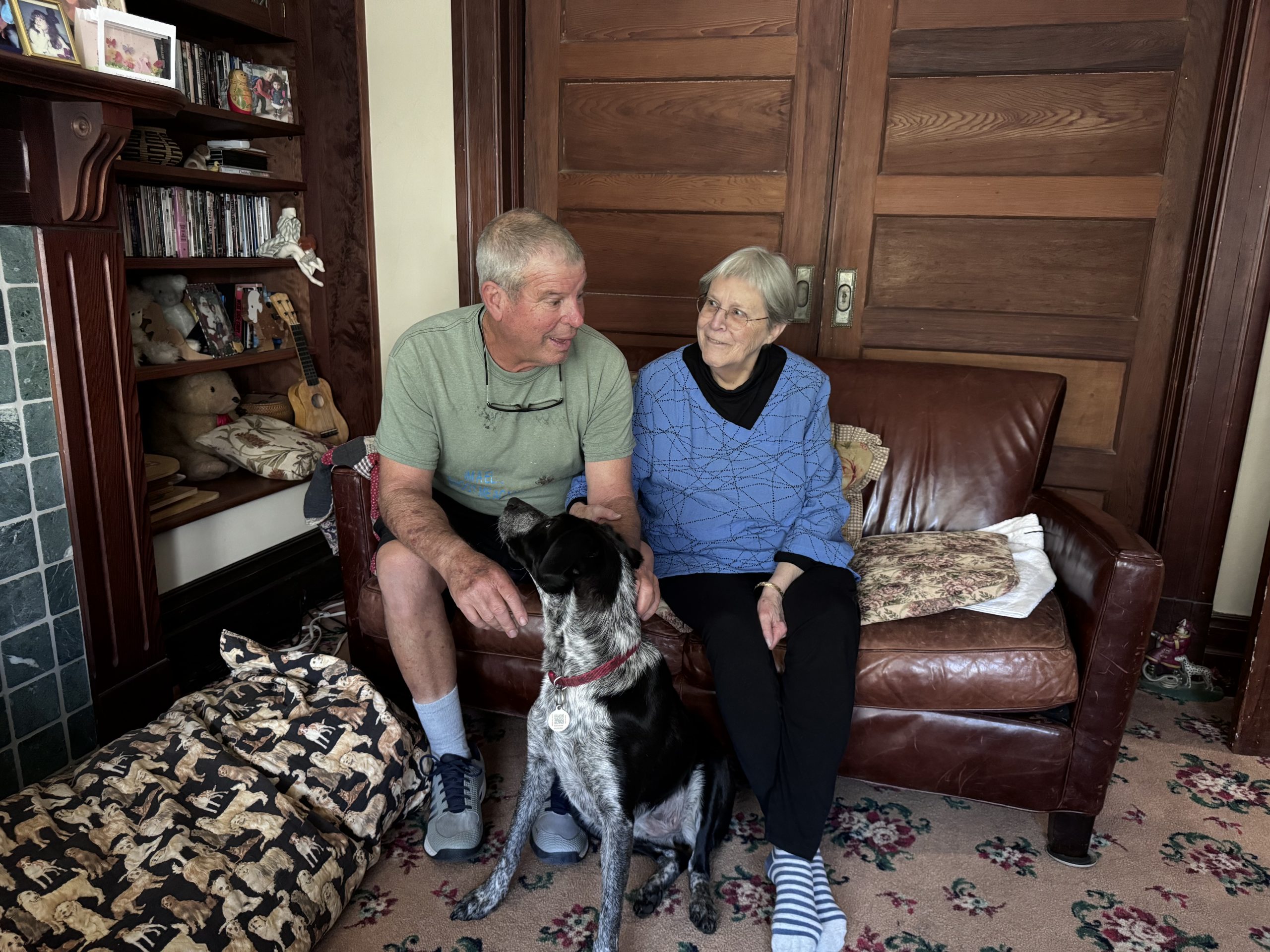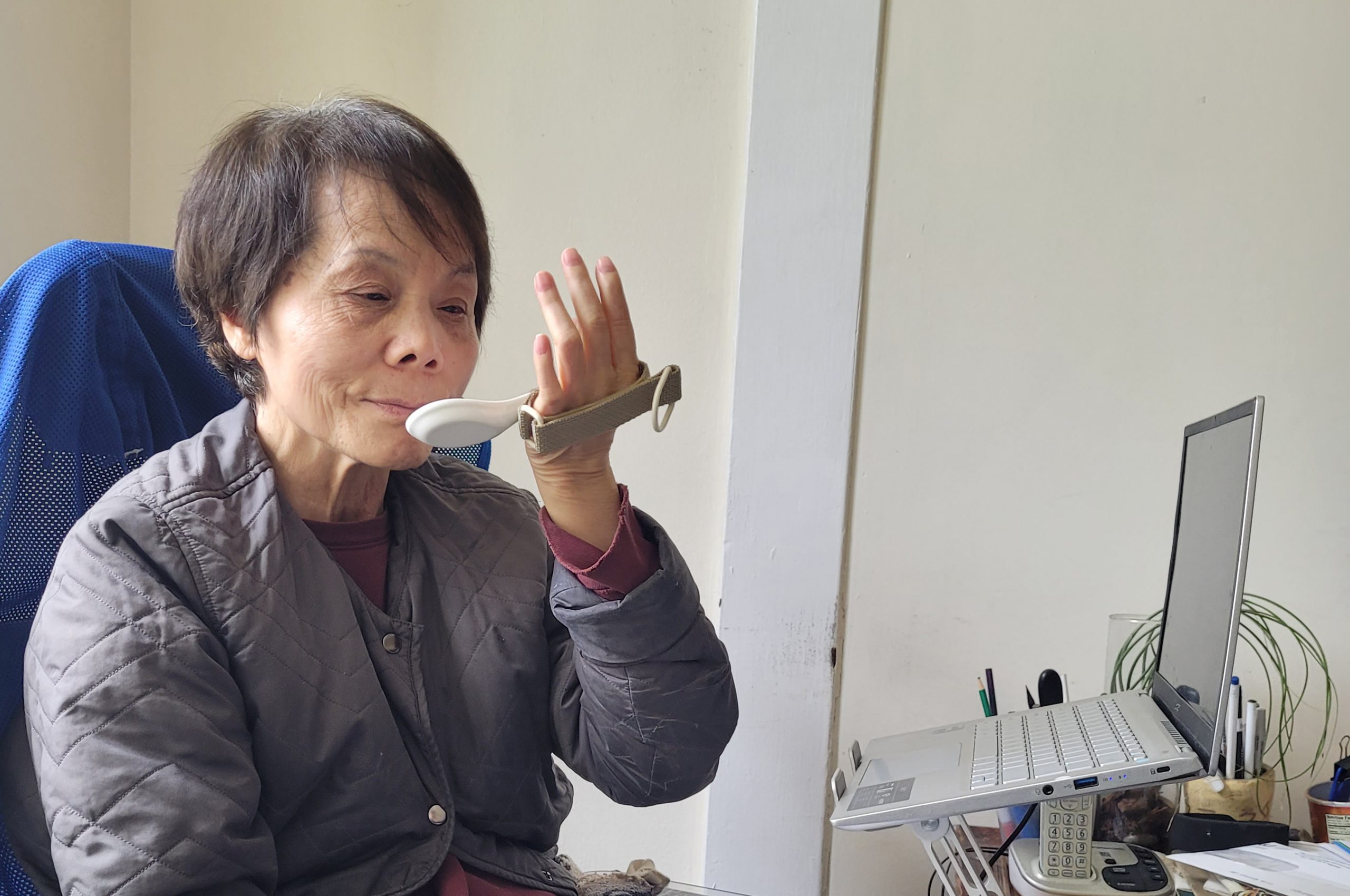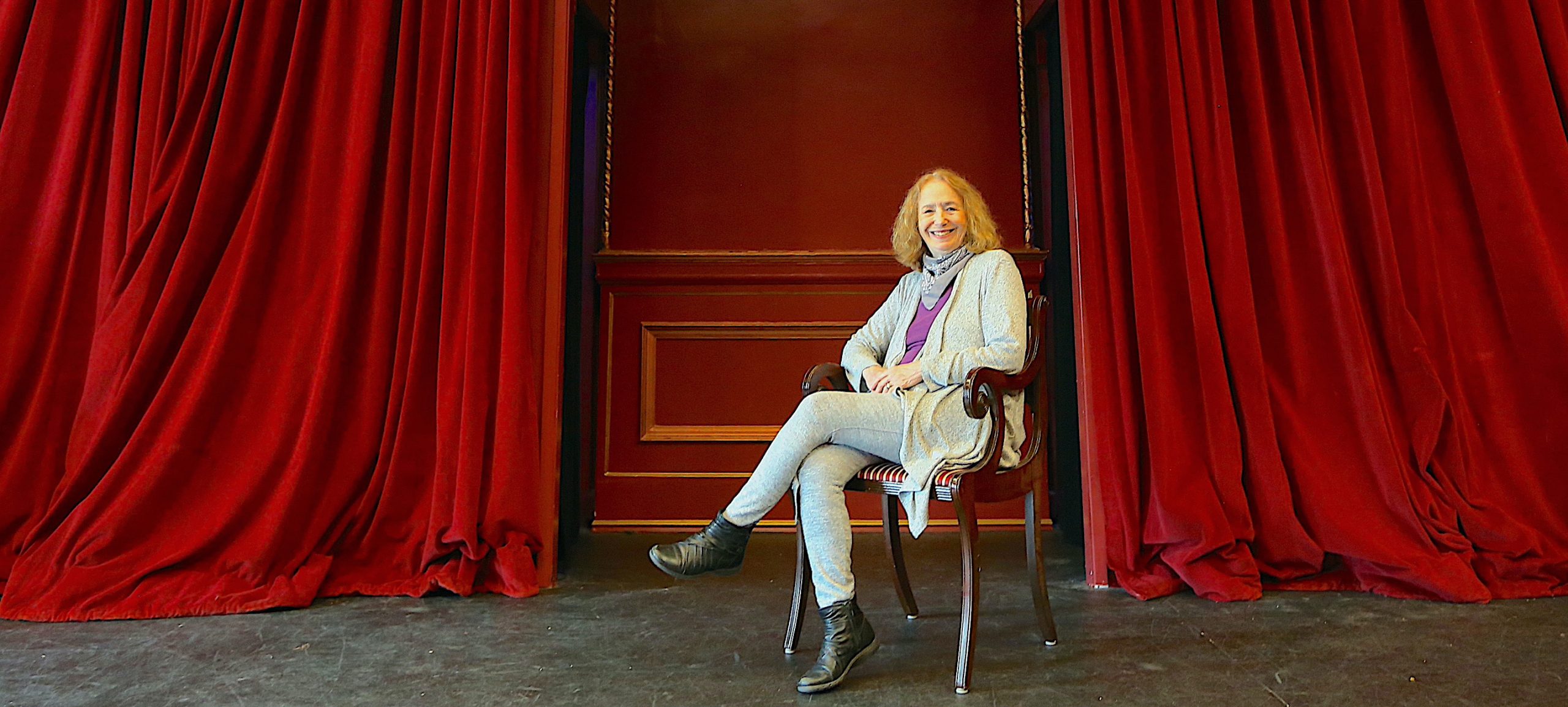SFUSD admin behind Bay Area’s only school nurse credentialing program adds pickleball pro to her resumé
When Mary Jue, 59, handled a pickleball paddle for the first time eight years ago, it handed back the excitement she remembered as a kid growing up in the Richmond District.
“It instantly brought up all those rewarding competitive feelings,” said Jue, who was the youngest daughter and seventh of nine children. “I couldn’t wait to finish my homework so I could go outside, ride my bike, or throw a ball around in the street or down at the park.”

Jue played competitive sports through high school, volleyball being her favorite.” I loved sports, I was driven.” Running on that same energy in pickleball, she won a gold medal at the Nationals tournament in Palm Desert in 2018.
Like many who play pickleball, now America’s and the Bay Area’s fastest-growing sport, Jue likes it because “almost everyone can play, without being really good at it, and they can socialize.”
She went a bit further than the average player, though. She earned a coaching certification in 2022 and started moonlighting to supplement her income. Daytime, she’s the coordinator of the School Nurse Services Credential program at San Francisco State University, where she earned a master’s degree in nursing in 1992.
Her nursing background has helped her coach, specifically the observational and diagnostic skills gleaned over 30 years. Recently, for example, noticing one of her students was routinely missing the ball, she asked about her vision. The student had been diagnosed with a vision deficit but hadn’t thought it would impact her game.
‘Making people’s lives better’
“I asked her if she was going to get her vision corrected, and not to be discouraged when she missed the ball,” Jue said, “and in the meantime, we tried to adjust by overestimating where the ball was going to be.”
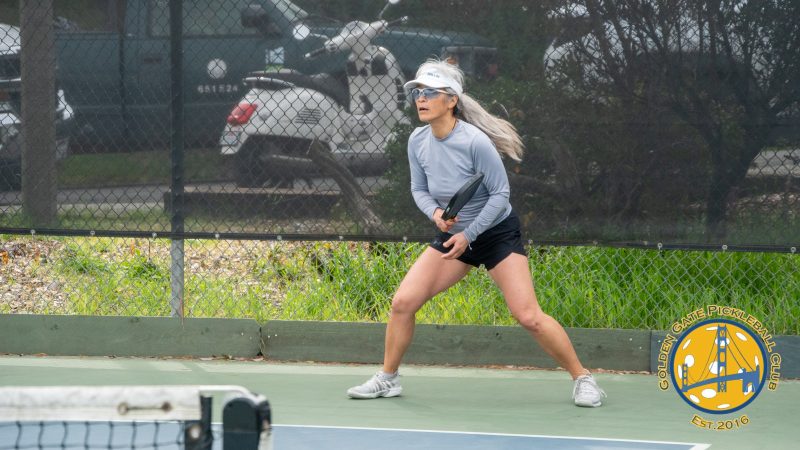
Coaching has also boosted her own game. It “has really improved my consistency and efficiency because I have to accurately feed the ball to students,” said the single mother of two grown daughters. One teaches third grade in the Los Angeles School district. The other lives in Ghana, and is also a pickleball coach.
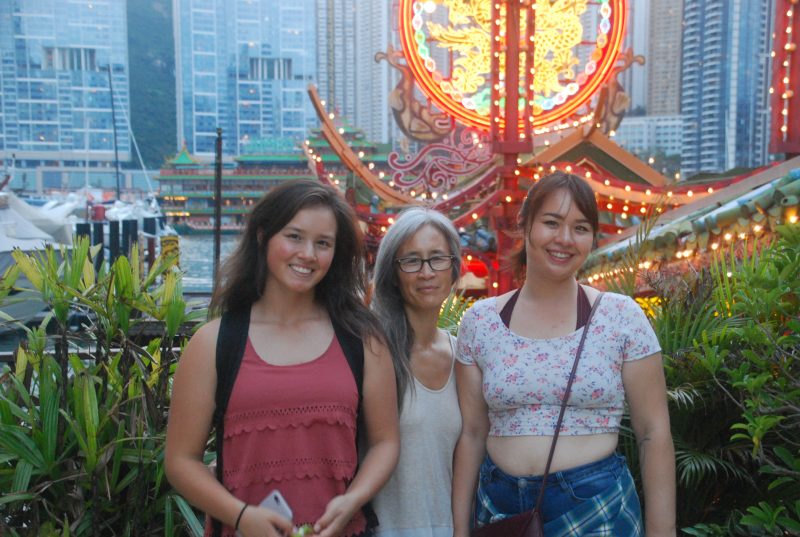
Jue began a nursing education with the intention of becoming a doctor. As part of her major in physical education and pre-med at the University of California-Berkeley, she volunteered in the student health center. “There, I met some incredible nurses, and what really impressed me was the quality time they spent with their clients,” she said.
That appealed to Jue, whose Chinese American heritage and Catholicism underlies her wish to “prioritize my family, my culture, and working to make people’s lives better,” she said. So, her career aspirations shifted to nursing.
Jue worked in acute care for a while but decided a public school setting was a better fit than a medical facility. “I wasn’t limited to just physical and medical care,” said Jue, who spent 17 years in the San Francisco United School District. “I could work holistically, really getting to know my clients, their families, the environment in which they live, and in this way, I could better help them solve their problems.”
In one case, Jue ended up having a private meeting with the father of a Tongan family whose special needs son was having difficulties. She had learned he was particularly hard on his children. ”When I broached the subject of discipline, he broke down crying,” she said. That’s how his own father had treated him.” Her hope was that that emotional release might lead to change.
Working as a school nurse also fit her interest in equity and social justice. “Public education, despite its faults, had an important mission of equity I could get behind,” she said.
A new nursing program
In 2013, she moved into administration and a job that would put her in control of health and nursing services for approximately 140 schools, 53,000 students, and 70 school nurses. She spent eight years in the Student and Family Services Division, first as a program administrator then supervisor, then director.
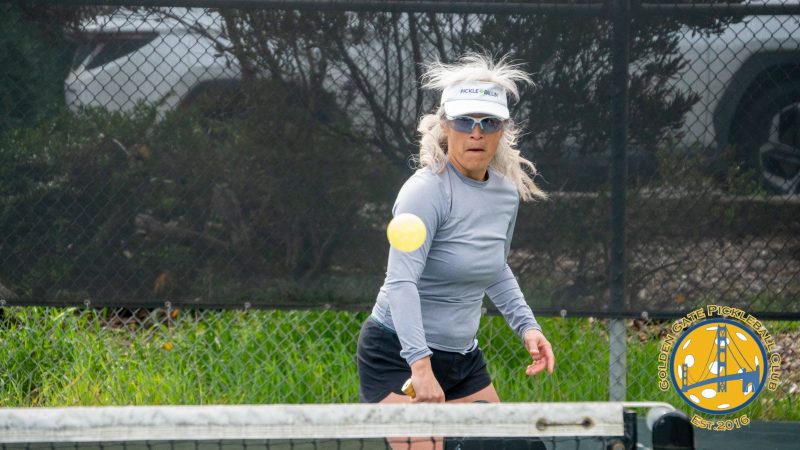
Her biggest contribution to the field of nursing may have been helping create the only School Nurse Services Credential program in the San Francisco Bay Area. The yearlong program prepares nurses to work with educators and parents in developing healthcare plans and programs to help students make the most of their education. Registered nurses can work in schools, but “school nurses” must also have a bachelor’s degree in nursing and a state credential.
San Francisco State’s credentialing program launched last August with 28 students, who as a prerequisite are already working in public schools. They come from all over the state, with 16 of the current 28 from the San Francisco Bay Area. Jue said there are 40 candidates for the next credential class and seven on the waitlist.
Nurses are in demand across the country; about 10,000 left the industry during the COVID pandemic. But schools have had their own set of challenges. Funding took a huge hit in 1978 with the passage of Prop. 13, which capped the local property tax rates that educators depended on. Even after San Francisco’s Prop. H in 2004, which added $60 million a year for the district, credentialing programs and enrollment declined.
There were no such state credential programs in the Bay Area when Jue decided on that career track. She got her credential at Cal State-Fresno. “When I started in 2005, there were no more than 30 nurses in the district, which has approximately 140 school sites and 55,000 students,” she said.
There are openings today, she said, but not at the minimum full-time nurse per school, as recommended in 2016 by the American Pediatrics Academy. So, she makes sure to keep district officials in contact with candidates. Learning the San Francisco State Nursing Student Association was only inviting hospitals to its career fair, she said, “I was able to get SFUSD on their list at the last minute so they could come to recruit,” Jue said.
A job with social impact
Jue teaches four courses in SF State’s new credentialing program and serves as a clinical instructor for students in supervised roles in community health nursing. Surprisingly, she said, “few nursing graduates even knew that nurses worked in schools.”
Although the cost of a credential can be a barrier -SF State’s new program is $11,000 – Jue notes its advantages. The biggest one, she believes, is the ability to have a greater societal impact by getting and keeping students on a healthy track.
Jue remembers one of her first accomplishments as a school nurse: helping a mother whose son was chronically absent. The boy’s record showed a history of vision and hearing issues, but no diagnosis and a history of missed appointments with health care providers.
“I discovered that the child’s single mother was overwhelmed and probably in denial about her son’s disabilities,” she said. Assuring the woman she was doing the best she could, Jue supported her through the process of getting her son help. Jue’s efforts earned her a letter of commendation from the boy’s social worker.
Working with children and their families can be very fulfilling, she said. “You get to build relationships with students and families like nowhere else, and there is so much one can do, determined by your own interests.
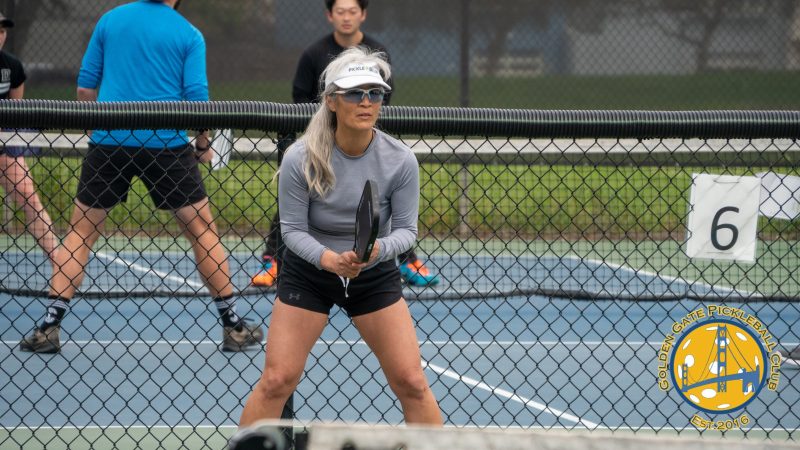
“Because of my interest in physical activity, I ran a ‘Trekker Tuesday,’ which was a running program at lunchtime that culminated in an annual track meet. Other nurses may incorporate art or yoga or more social activities like knitting into their programming.”
And then, there’s the summer months off, an advantage perhaps for nurses who have children in school.
The school nurse role
The challenges to the job have more to do with how it’s described – or not.
“A lot of school nurses feel disempowered,” Jue said because state education codes describe but don’t mandate the kinds of work school nurses do. What school nurses can or cannot do depends on what they can negotiate with school administrators. Because of that nurses are sometimes tasked with non-healthcare work, such as answering phones or monitoring recess, Jue said.
Because their role within the school’s administration is not defined, nurses may not be included in meetings where they could have important input, she added. The codes don’t clarify what kind of support schools should provide nurses, so some may have to work out of empty offices or portable classrooms. “I have worked out of a closet,” Jue said. “We need better working conditions for proper storage, bathroom, and running water accessibility.”
That’s one area Jue hopes San Francisco State’s new credentialing program can improve, by showing nurses how to advocate for themselves and partnering with university educators, such as social sciences professors, whose graduates may end up working with nurses within the school system. “You know, educate the students so when they are on the job they understand the school nurse’s role,” she said.
She also continues to play pickleball once or twice a week with a group of friends, but admitted, “My tournament days are behind me.”



